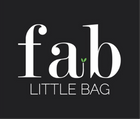
Why Period Education Is for Everyone—Not Just Girls
When you hear “period education,” you might think it’s only something girls learn about in school. But periods affect more than just those who menstruate—they’re a part of life that impacts families, workplaces, and entire communities. To truly break the stigma and foster inclusivity, period education needs to be for everyone, regardless of gender.
Let’s dive into why understanding periods is crucial in schools, workplaces, and homes, and how educating everyone about them can help break taboos and create a more supportive world.
1. Periods Are a Shared Reality
Periods aren’t just a private experience—they affect the people around us too. Whether it’s a parent supporting their child, a partner offering emotional or physical support, or a manager creating an inclusive workplace, understanding periods makes a difference.
Without proper education, misconceptions persist, leaving those who menstruate to face stigma, embarrassment, and a lack of support. Educating everyone allows us to break these barriers and normalize discussions around periods.
Did You Know?
- 48% of girls in the UK feel embarrassed by their period due to societal taboos.
- 1 in 10 girls globally misses school during their period because of stigma or lack of proper facilities.
2. Period Education in Schools: Teaching Beyond the Basics
Traditionally, period education in schools focuses on the biological aspects—when it starts, how long it lasts, and what products to use. But this isn’t enough. Period education should be expanded to teach empathy, inclusivity, and sustainability.
Why Boys Need Period Education Too:
- Understanding periods reduces teasing and bullying, making schools a safer space for all students.
- Boys who understand menstruation grow up to be more supportive partners, friends, and colleagues.
- It encourages the normalisation of periods as a fact of life, not something to be hidden.
💡 Tip: Schools can incorporate gender-inclusive discussions on periods, highlighting how they affect people physically, mentally, and emotionally.
3. Period Education in the Workplace: Building Inclusive Environments
The workplace is another area where period education is often overlooked, but its impact can be significant. A period-positive workplace improves employee well-being, reduces absenteeism, and fosters a culture of inclusivity.
How Period Education Helps Workplaces:
- Breaks taboos: Normalises discussions around menstruation, allowing employees to ask for support without fear.
- Reduces stigma: Managers and colleagues become more understanding of challenges related to periods, such as fatigue or pain.
- Encourages proper period care: Providing free period products and sustainable disposal solutions, like FabLittleBag, demonstrates that the business values its employees’ well-being.
💡 Tip: Employers can hold educational sessions on menstrual health as part of their wellness programs and install FabLittleBag dispensers in bathrooms for hygienic disposal options.
4. Period Education at Home: Creating Open, Supportive Conversations
Families play a crucial role in shaping how children view periods. When parents, siblings, and caregivers are open about menstruation, it creates a safe space for children to ask questions and feel comfortable with their bodies.
Why It Matters:
- Children learn that periods are normal, not something to be ashamed of.
- It builds trust between parents and children, allowing for open discussions about health and well-being.
- Boys who grow up understanding periods are more likely to support partners, friends, or colleagues in the future.
How to Start:
- Introduce age-appropriate books or videos about periods to initiate discussions.
- Normalise talking about periods as part of general health education within the family.
5. Sustainability Should Be Part of the Conversation
Period education shouldn’t stop at biology—it should also include the environmental impact of period products. Many disposable products contain plastic and contribute to pollution when flushed or improperly disposed of.
Teaching sustainable period care options helps reduce environmental harm and promotes responsible habits.
Introduce Sustainable Solutions:
- Reusable Products: Menstrual cups and period underwear can reduce waste.
- Eco-Friendly Disposal: FabLittleBag offers disposal period bags, making it easy to bin products responsibly without worrying about leaks or odours.
💡 Tip: Incorporate discussions about sustainable period care in schools and workplaces to encourage environmentally conscious habits.
6. Breaking the Cycle of Period Poverty
Period education plays a key role in addressing period poverty—when people cannot afford or access basic period products. Educating communities on the importance of access to period products and proper facilities is crucial for breaking this cycle.
What Businesses and Schools Can Do:
- Provide free period products in restrooms.
- Partner with organisations that work to end period poverty.
- Raise awareness through educational campaigns.
7. The Role of Men and Non-Menstruators
Breaking period taboos isn’t just the responsibility of those who menstruate. Men and non-menstruators play a vital role in creating a supportive environment by:
- Advocating for period-positive policies in schools and workplaces.
- Supporting partners, family members, and friends during their cycles.
- Speaking up against period stigma and promoting open discussions.
The more everyone is involved, the closer we get to a world where periods are treated with the normalcy they deserve.
Take Action: Let’s Build a Period-Positive Future Together
Period education isn’t just for girls—it’s for everyone. By teaching empathy, inclusivity, and sustainability in schools, workplaces, and homes, we can create a more supportive world where periods aren’t a source of shame or discomfort.
At FabLittleBag, we’re committed to supporting this change by providing sustainable disposal solutions and advocating for period positivity in every space.
Ready to make a difference?
Start the conversation, share this blog, and join the movement toward a world where everyone understands and supports period care.
